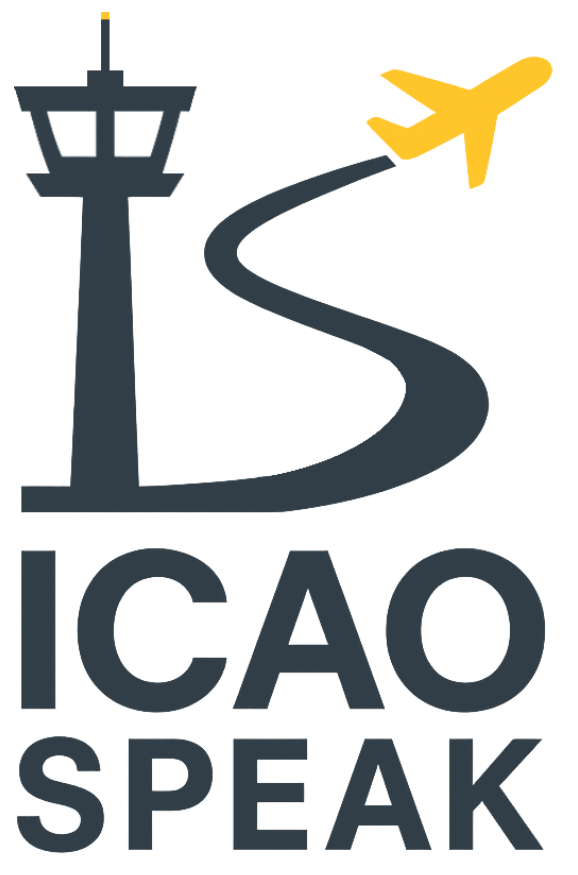In the high-stakes world of aviation, clear communication is not just a skill—it’s a matter of life and death. The International Civil Aviation Organization (ICAO) mandates that pilots and air traffic controllers demonstrate English proficiency to ensure safe and efficient operations in international airspace. The ICAO English test for pilots evaluates critical language skills, making it a cornerstone of aviation English proficiency and a requirement for licensing. At icaospeak.com, we understand the importance of this certification and offer accredited testing and training to help pilots succeed. This comprehensive guide explores why pilots need to pass the ICAO English test, its impact on safety and career advancement, and how to prepare effectively.
Whether you’re a student pilot or a seasoned professional, passing the ICAO English test is essential for your career and the safety of global aviation. Let’s dive into the reasons why this test is critical, how it works, and how icaospeak.com can support your journey to pilot language certification.
The Role of English in Aviation Safety
English is the universal language of aviation, used for communication between pilots, air traffic controllers (ATC), and ground crews worldwide. Miscommunication in the cockpit or with ATC can lead to catastrophic consequences, as highlighted by several historical incidents. For example, the 1996 Charkhi Dadri mid-air collision, one of the deadliest aviation accidents, was partly attributed to language misunderstandings. To address this, the ICAO introduced the Language Proficiency Requirements (LPRs) in 2008, outlined in ICAO Doc 9835, mandating that pilots and controllers achieve at least Level 4 proficiency for international operations.
The ICAO English test for pilots assesses six key skills:
- Pronunciation: Clear enunciation for radio communication.
- Structure: Grammatical accuracy in high-pressure scenarios.
- Vocabulary: Knowledge of aviation-specific terms like “squawk” or “go-around.”
- Fluency: Ability to speak smoothly and confidently.
- Comprehension: Understanding diverse accents and rapid speech.
- Interactions: Responding appropriately in routine and emergency situations.
By passing the test, pilots demonstrate their ability to communicate effectively, reducing the risk of errors and enhancing aviation safety. Ready to prepare? Explore our ICAO English test preparation resources at icaospeak.com.
Why Pilots Need the ICAO English Test
The ICAO English test is not just a regulatory requirement—it’s a gateway to career opportunities and a critical component of safe aviation operations. Below are the top reasons why pilots must pass this test.
1. Ensuring Aviation Safety
Clear communication is vital in aviation, where split-second decisions can prevent accidents. The ICAO language proficiency standards ensure pilots can:
- Understand and respond to ATC instructions, such as clearances or holding patterns.
- Communicate effectively during emergencies, like engine failures or weather diversions.
- Collaborate with international crews using standardized ICAO phraseology.
By achieving Level 4 or higher, pilots contribute to safer skies, protecting passengers, crew, and aircraft.
2. Meeting Licensing Requirements
Most aviation authorities, including the European Union Aviation Safety Agency (EASA), require pilots to demonstrate aviation English proficiency for licensing. For example:
- Private Pilot License (PPL): May require basic proficiency for international flights.
- Commercial Pilot License (CPL): Mandates at least ICAO Level 4 for international operations.
- Airline Transport Pilot License (ATPL): Often requires Level 5 or 6 for global airlines.
Failing to pass the test can delay licensing or restrict pilots to domestic operations, limiting career prospects.
3. Accessing Global Career Opportunities
The aviation industry is global, with major airlines operating across borders. Passing the ICAO English test for pilots opens doors to:
- Employment with international airlines, such as Emirates or Lufthansa.
- Opportunities to fly in English-speaking regions or international routes.
- Career advancement, as higher proficiency levels (e.g., Level 6) demonstrate superior skills.
Our accredited tests at icaospeak.com are recognized by EASA and ICAO, ensuring your certification is valid worldwide. Schedule your test today.
4. Reducing Retesting Frequency
The ICAO English proficiency levels determine how often pilots must retest:
- Level 4: Retest every 4 years.
- Level 5: Retest every 6 years.
- Level 6: No retesting required.
Achieving a higher level saves time and money in the long run, making preparation critical. Our 1-on-1 training can help you aim for Level 5 or 6.
5. Building Confidence in High-Pressure Situations
The test prepares pilots to communicate confidently in challenging scenarios, such as:
- Handling non-routine situations, like diversions or equipment malfunctions.
- Understanding diverse accents from ATC or crew members.
- Using aviation communication skills to maintain situational awareness.
This confidence translates to better performance in the cockpit and during training.
How the ICAO English Test Works
Understanding the test’s structure is key to preparation. The ICAO English test for pilots typically lasts 20–30 minutes and is conducted via a secure platform, often online, like at icaospeak.com. Here’s what to expect:
- Introductory Conversation: Discuss your aviation background with a certified examiner.
- Listening Tasks: Respond to ATC recordings or aviation-related scenarios.
- Speaking Tasks: Describe images, explain procedures, or role-play emergency situations.
- Assessment Criteria: Evaluated on the six ICAO language proficiency skills, per ICAO Doc 9835.
The test does not assess operational knowledge but focuses on language skills in aviation contexts. Our mock tests simulate the real exam, helping you prepare effectively.

The Impact of ICAO English Proficiency on Pilot Careers
Passing the ICAO English test has far-reaching implications for pilots’ careers, from licensing to global opportunities. Here’s a detailed look:
| Career Aspect | Impact of Passing the Test | Consequences of Not Passing |
| Licensing | Enables PPL, CPL, or ATPL for international flights | Delays licensing, restricts to domestic routes |
| Airline Hiring | Qualifies for international airlines | Limits job prospects to local carriers |
| Career Advancement | Supports promotions to captain or instructor roles | Hinders progression, requires retesting |
| Global Mobility | Allows flying in any ICAO member state | Restricts operations to non-English regions |
| Professional Reputation | Demonstrates communication skills and professionalism | May raise concerns about competence |
For example, airlines like Qatar Airways require Level 4 or higher for hiring, while Level 6 can set you apart for competitive roles. Start your journey with our ICAO English test.
Challenges Pilots Face in the ICAO English Test
Pilots often encounter challenges when preparing for the test. Here’s how to address them:
- Pronunciation: Non-native speakers may struggle with clear enunciation. Practice with native speakers or instructors to improve.
- Aviation Vocabulary: Terms like “holding pattern” or “go-around” require familiarity. Study ICAO phraseology through training materials.
- Fluency Under Pressure: Role-playing emergency scenarios builds confidence in high-stress situations.
- Comprehension: Exposure to diverse accents via ATC recordings enhances understanding.
Our 1-on-1 training sessions at icaospeak.com address these challenges with personalized coaching.
How to Prepare for the ICAO English Test
Effective preparation is key to passing the ICAO English test for pilots. Here are actionable steps:
- Understand the Test Format: Familiarize yourself with the structure using resources like our test preparation guide.
- Take a Mock Test: Practice with realistic simulations to identify weaknesses. Try our mock test for €69.
- Enroll in Training: Join a course with certified instructors to improve aviation communication skills. Our sessions are €29/hour.
- Practice Regularly: Listen to ATC recordings, read aviation manuals, and practice speaking daily.
- Seek Feedback: Work with an instructor to refine pronunciation, grammar, and fluency.
For official guidelines, visit the ICAO Language Proficiency Requirements.
Benefits of Passing the ICAO English Test
Passing the test offers numerous advantages:
- Enhanced Safety: Clear communication reduces errors in the cockpit and with ATC.
- Career Growth: Qualifies you for international roles and promotions.
- Global Recognition: EASA and ICAO accreditation ensures worldwide acceptance.
- Confidence: Mastery of aviation English boosts performance in high-pressure scenarios.
- Long-Term Savings: Higher levels (e.g., Level 6) eliminate retesting costs.
Ready to reap these benefits? Book your ICAO English test with icaospeak.com.
Why Choose icaospeak.com for Your ICAO English Test
At icaospeak.com, we make achieving pilot language certification seamless and effective:
- Accredited Testing: Compliant with ICAO and EASA standards, recognized globally.
- Expert Instructors: Certified aviation English professionals with real-world experience.
- Affordable Pricing: Tests at €169, mock tests at €69, and training at €29/hour.
- Fast Results: Receive your level within 3 business days.
- Comprehensive Support: Access mock tests, training, and personalized guidance.
Start preparing with our 1-on-1 training or schedule your test now.
Frequently Asked Questions
1. Why is the ICAO English test mandatory for pilots?
It ensures pilots can communicate clearly in international airspace, enhancing safety and meeting licensing requirements.
2. What happens if I don’t pass the test?
You may be restricted to domestic operations or need to retake the test. Contact us at icaospeak.com/contact for support.
3. How often do I need to retake the test?
Level 4: Every 4 years; Level 5: Every 6 years; Level 6: No retesting required.
4. Can I take the test online?
Yes, our online tests at icaospeak.com are convenient and accredited. Learn more about our test process.
5. How can I prepare effectively?
Enroll in our training sessions and practice with our mock tests.
Conclusion
The ICAO English test for pilots is a critical requirement that ensures safety, meets licensing standards, and unlocks global career opportunities. By passing the test, pilots demonstrate their ability to communicate effectively in the high-stakes aviation environment, contributing to safer skies and advancing their careers. At icaospeak.com, we offer accredited testing, personalized training, and affordable pricing to help you succeed.
Take the first step toward aviation English proficiency today. Schedule your ICAO English test or book a 1-on-1 training session with icaospeak.com. For questions, contact our team.
